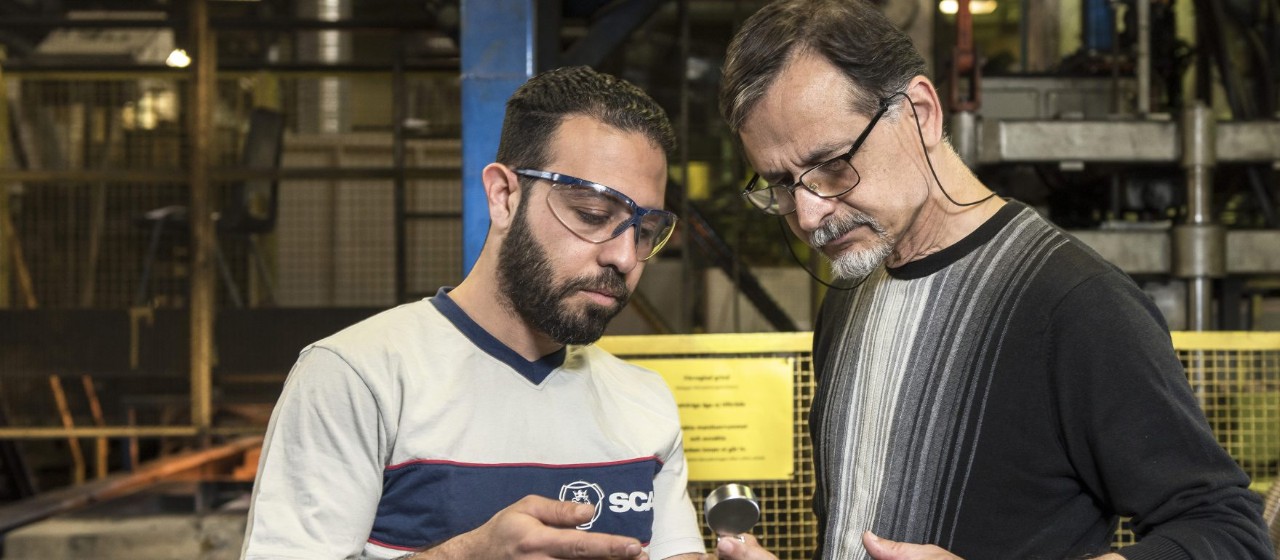
Mentors for new engineers
17 AUGUST 2016
What are the ABCs Swedish working life? Drawing on his own experiences, Research & Development engineer Mehran Arefi Sigaroodi decided to become a mentor to engineers who have recently arrived in Sweden.
“There are many ways to contribute to integration of newly arrived immigrants,” he says. “As a mentor, my job is to pass on knowledge of what happens on a typical day for an engineer in Sweden. If somebody doesn’t say hello, it doesn’t necessarily mean that they do not like you. Refugees have had to deal with a lot and it can be easy to take things like that personally.”
Mentoring programme part of introduction to working life
In cooperation with the City of Stockholm and Stockholm University, Swedish engineers are involved in several mentoring programmes. Mentoring is just one part of the introduction to working life, alongside work-related Swedish language tuition and internships.
Over the course of three to six months, all the mentors and their mentees meet up together three times: before the start, in the middle of the period and at the end. In between, they meet in pairs two or three times. Mehran was initially a mentor to the Ecuadorian engineer Julio David Espinoza, who lived and trained as an engineer in Spain, but who has now lived in Sweden for more than two years. They have continued to meet up even after the mentoring programme ended.
Now he is a mentor to an engineer, Yousef Mossly, who has recently arrived from Syria and is currently working as an intern at the foundry at Scania. When Mehran looks back on his arrival in Sweden in 1986, he thinks much has changed for the better.
“Nowadays, there are special Swedish for Immigrants programmes aimed at different professions and at different levels. At that time, there was no support in society at large. We had no contact with actual Swedes. I remember that I invited in some Jehovah’s Witnesses when they rang the doorbell just to have the chance to speak Swedish.”
After studying at KTH Royal Institute of Technology, Mehran started working as an engineer but lost his job when the dotcom bubble burst in the early 2000s. He then trained as a teacher, a job he did for a few years.
“When I lost my job and became unemployed, I applied for more than 500 jobs without success. It was a difficult time, as I had invested ten years of my life in education and had half a million krona in student debt. Others were already established on the labour market and were living a good life.”
Huge value in rapid integration
For ten years Iranian-born Mehran has been working at Scania, where he now works in engine development and is also a member of the board of Akademikerföreningen, one of the trade unions at Scania. He has also acted as an advisor to Iranian students doing their thesis projects at Scania. Even here, he has seen how cultural differences can be confusing.
“They like to check off their tasks point by point, and this is easily perceived by Swedes as them not having understood what they need to do.”
Mehran sees huge value in quickly integrating newly arrived qualified engineers into Swedish working life, and he urges more people to help by becoming mentors.
“They are fully trained engineers who have not cost Swedish society anything in terms of medical care, daycare, school or university. Nobody benefits if they are frustrated and anguished over the fact that nobody wants to take advantage of their skills. A happy citizen is always better than a frustrated one.”